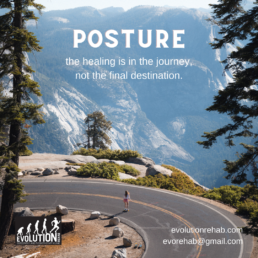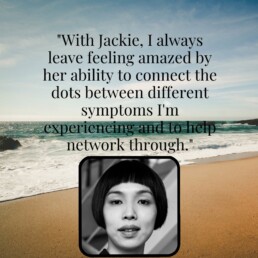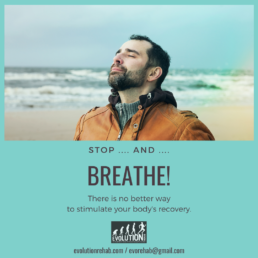Posture......It is important, but not how we think!
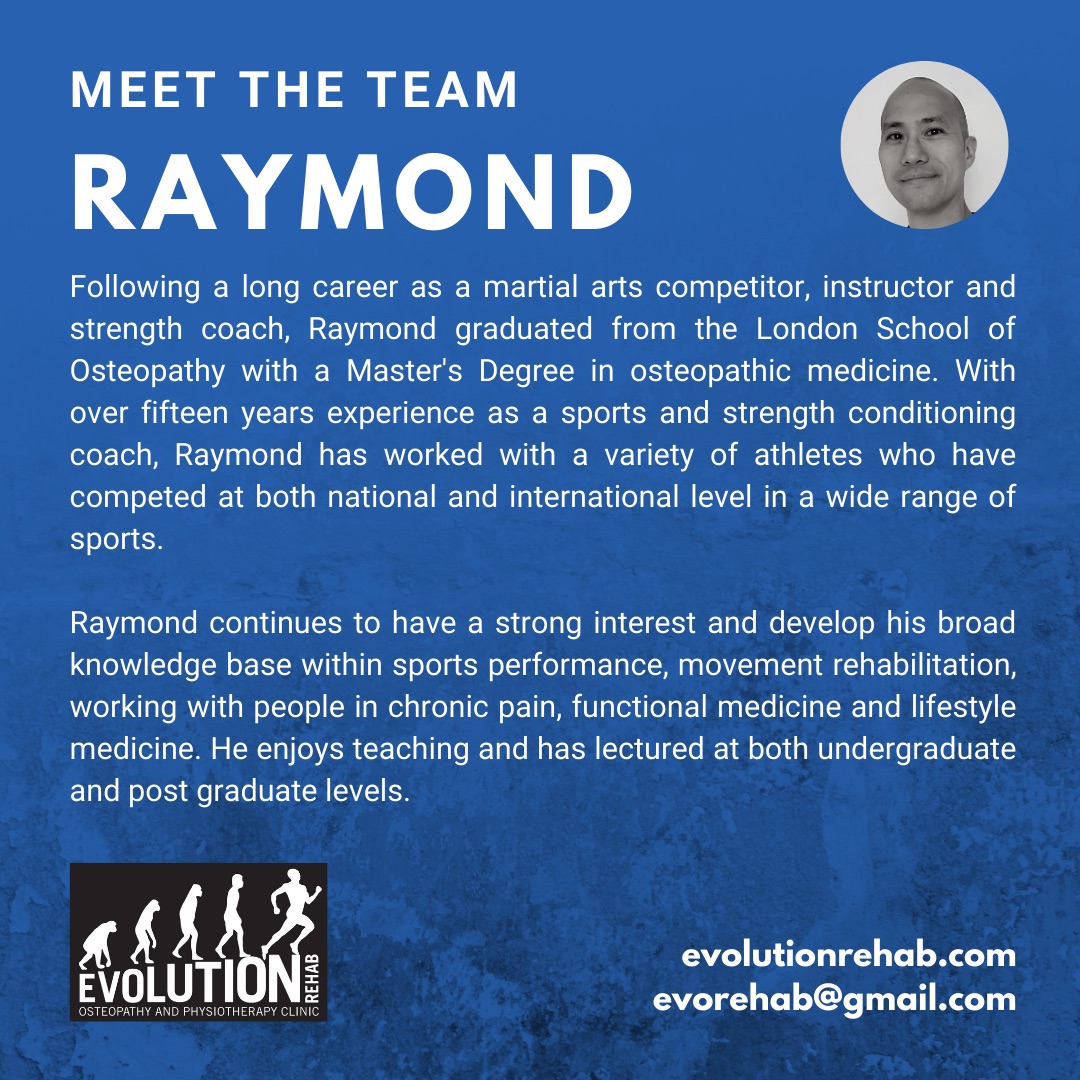 Posture is often misunderstood, and it is a commonly oversimplified concept within the context of healthcare and movement today.
Posture is often misunderstood, and it is a commonly oversimplified concept within the context of healthcare and movement today.
So many of us attribute moral value to our postures. We often talk about our posture and how bad it is, or how poorly we seem to hold ourselves. Historically, posture has always been viewed as a concept of pure vertical spinal alignment in which we are required to best position ourselves, for the purposes of most effectively counteracting the perpetual downward pull of gravity upon our bodies.
Unfortunately, this conception of posture has also lead many people (including some therapists!) to develop an erroneous belief that there is an idealised body position for our spines and backs which we should always remain within, and any slight deviation of our structure away from this idealised position will incur costly damage to our bodies (and our spines!).
 Unfortunately, this understanding of posture is oversimplified and incorrect. In reality, posture is a dynamic process which changes in relation to the different environments that we find ourselves within, it responds to the varying emotional states that we possess and it continuously fluctuates in response to the different physical tasks that we undertake.
Unfortunately, this understanding of posture is oversimplified and incorrect. In reality, posture is a dynamic process which changes in relation to the different environments that we find ourselves within, it responds to the varying emotional states that we possess and it continuously fluctuates in response to the different physical tasks that we undertake.
All of the structures within our bodies have evolved to both need and like movement, and this is no different when it comes to the various structures that constitute our backs. In fact, the way to keep and maintain a healthy back is to both safely and regularly inject a variety of different movements into our spines on a daily basis.
 This is not to say that posture is not important! The strategies that we use to coordinate our postural control can determine the efficiency of our movement and how well we are able to move on a daily basis.
This is not to say that posture is not important! The strategies that we use to coordinate our postural control can determine the efficiency of our movement and how well we are able to move on a daily basis.
At Evolution Rehab, we don’t like to look at posture as good or bad, we prefer to look at posture with regards to whether it is both efficient and appropriate for the task that is being undertaken.
 Effective posture should be relaxed, coordinated, appropriately aligned to reflect the task that we are doing, and provide a proper foundation in which our muscles are able to efficiently move our bodies.
Effective posture should be relaxed, coordinated, appropriately aligned to reflect the task that we are doing, and provide a proper foundation in which our muscles are able to efficiently move our bodies.
As stated by noted Russian physiologist, Nicholai Bernstein, “Trying to move with inefficient posture is like trying to write with a floppy pen!”
Traditionally, posture has been taught in a very prescriptive and direct manner. “Stand up properly! Sit up straight! Pull your stomach in! Hold your shoulders back!” Whilst these commands may address some of the visual aspects of bringing your spine into a position of upright alignment, the result is a postural strategy which is stiff, rigid, restricts proper movement within the body (including breathing), tiring in terms of energy and therefore unsustainable in the short term, let alone the long term!
 The purpose of postural training, is to help you to learn effective strategies of body alignment, balance and coordination, which all serve as an important platform from which you are able to learn efficient, pain free movement for life, sport and performance. It will provide a vital central axis around which you develop a better understanding of your balance, and a greater awareness of the sense of location within your own body.
The purpose of postural training, is to help you to learn effective strategies of body alignment, balance and coordination, which all serve as an important platform from which you are able to learn efficient, pain free movement for life, sport and performance. It will provide a vital central axis around which you develop a better understanding of your balance, and a greater awareness of the sense of location within your own body.
In essence, the goal of postural training is a gentle and extremely accessible way to help you improve your confidence in the control of your own body, and serve as a foundation to enable you to learn light, effortless, fluid and dynamic movement. In terms of rehabilitation, this is vital for your recovery moving forwards!
Our hope is that through postural training, you will engage within positive movement strategies which will allow your brain to effortlessly find the most appropriate, efficient posture and body position, in relation to the task that you are doing.
Hence, once you have established a foundation of efficient, effortless and beautifully balanced upright posture, you will be able to use this as a positive reference for all your functional and dynamic movement learning thereafter.
At Evolution Rehab, postural training is an integral component within the process of injury rehabilitation, movement performance and sporting performance, for most of the patients and clients who attend our clinic.
If you want to get a head start on your journey of both improving your movement and your posture, download our Free Postural Reset Promo Handbook.
The password for the download is:
POSTUREISIMPORTANT
Alternatively, if you wish to find out more our Postural Reset Programme and how it may help you to reduce pain or improve your performance on the field, please feel free to drop us an email at evorehab@gmail.com, and one of our team will be happy to get back to you.
Periods: Knowing your Normal!
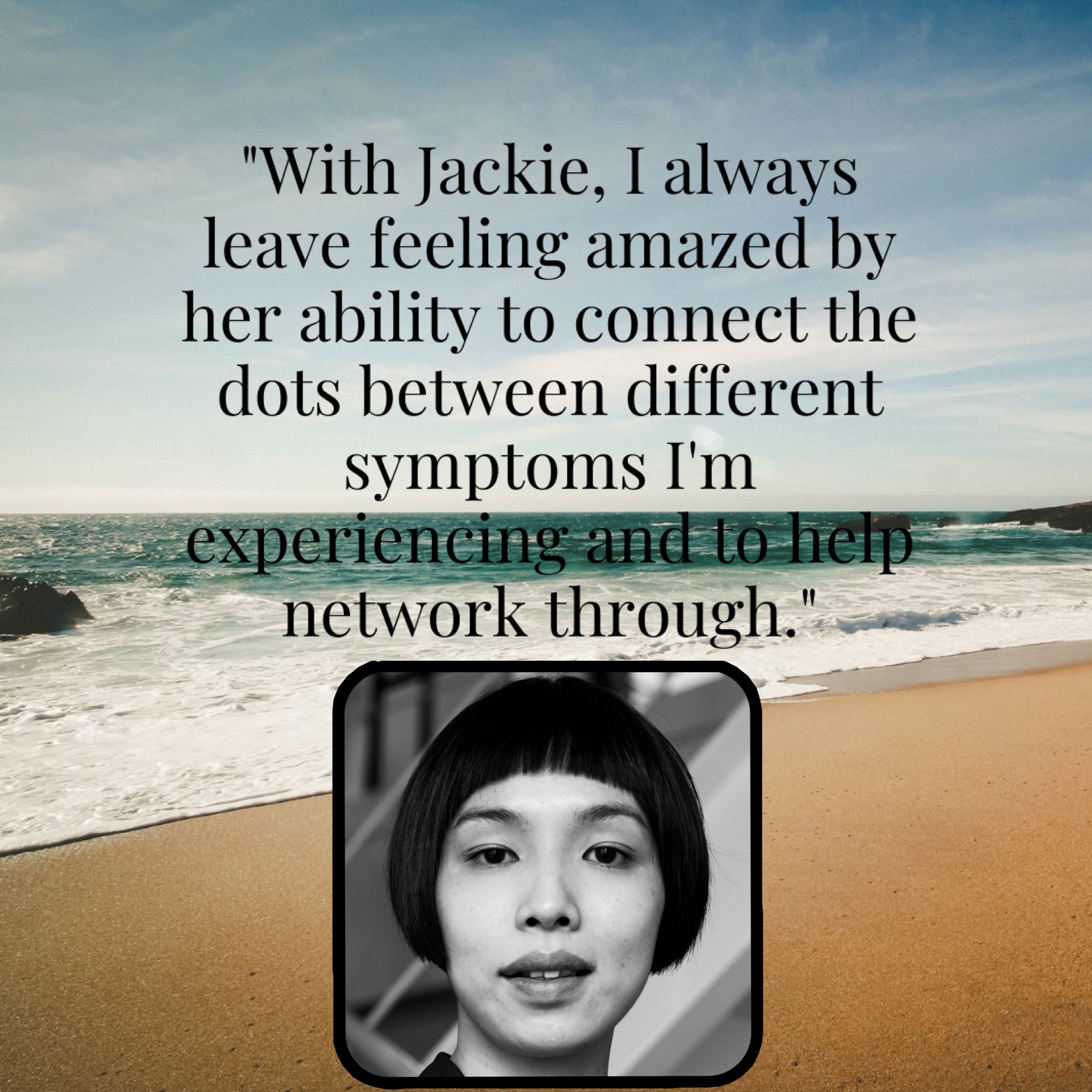 I am writing this blog on the tail-end of my period. My first period for five years, and my first menstrual bleed since September 2018. I was elated, overwhelmed and so happy when I saw blood on the toilet paper, that I texted a host of messages to my close friends and felt a great sense of relief and joy!
I am writing this blog on the tail-end of my period. My first period for five years, and my first menstrual bleed since September 2018. I was elated, overwhelmed and so happy when I saw blood on the toilet paper, that I texted a host of messages to my close friends and felt a great sense of relief and joy!
There’s a story to tell about missing periods, and I will get into that one day. Today, I want to dive into the monumental difference between “My First Period Ever” (MFPE) and Period 2020. These two experiences are literally at opposite ends of the spectrum.
When I got MFPE, I was eleven years old and away at camp. Someone else pointed it out to me. I had the vaguest idea as to what was going on, and I had cramps. The next few periods were as uncomfortable, but I was getting better at waddling around with what felt like 3 pairs of socks lining my pants. I decided periods were awful, “being a woman” sucked, and hoped that everything would just go away. I was 18 before I discovered that Premenstrual Stress was real. Prior to that I chalked the mood swings and irritability up to “being a woman”. I knew nothing of cycles, so I resented my body, this thing capable of unpredictable blood-red treachery. I watched my mother go through perimenopause. It was predictably awful. It made her already volatile temper incandescent. A super volcano of rage. No one was immune. I decided there and then, that “Being a woman” really, really sucked!
 20 years on from MFPE, I want to throw a little celebration for Period 2020. I made a chocolate mousse and bought myself some flowers. Quite a change! And it all comes down to education and body literacy. I know NOW, that having a menstrual cycle is vital for growth, health and happiness. I know that a healthy menstrual cycle is important for things other than making babies and I hope that the sharing of my experiences can help you too. Here are some things that I wish I had known:
20 years on from MFPE, I want to throw a little celebration for Period 2020. I made a chocolate mousse and bought myself some flowers. Quite a change! And it all comes down to education and body literacy. I know NOW, that having a menstrual cycle is vital for growth, health and happiness. I know that a healthy menstrual cycle is important for things other than making babies and I hope that the sharing of my experiences can help you too. Here are some things that I wish I had known:
Hormonal Health:
Estrogen and progesterone are the two main hormones of the menstrual cycle. There are receptors for these hormones all over the body, which means that their effects are widespread.
 Bone health:
Bone health:
The surge of estrogen (E) and progesterone (P) during puberty is vital for building and maintaining strong bones. Females are classically more prone to osteoporosis around menopause, and that is largely due to permanently decreased levels of E and P. Not all females over the age of 70 fracture their ankles stepping off the pavement- which shows that if we maximise our chance of creating bone density during puberty-early 30s, we can look forward to being mobile and strong as we age. Every year of not having periods results in a 2% decrease in spinal bone density!
Muscle strength:
We build muscle too during puberty, and estrogen is key in driving this.
Immune system:
Females have a stronger immune system-as we can see from the data from the COVID-19 pandemic. It’s also why we don’t get manflu.
Cardiovascular Health:
Heart disease is one of the top killers of females globally, typically in post-menopausal years. Estrogen keeps blood vessels pliable (which means blood pressure is in a healthy range) and prevents oxidative stress.
 Sex drive:
Sex drive:
Estrogen is key in maintaining a healthy sex drive.
Vaginal health:
Can we all take a moment to recognise the importance of lubrication? Estrogen ensures that our mucosal surfaces are well-lubricated. This is important for comfort (Amen!) and protection, as vaginal fluid also contains antibodies. The natural acidicity of our vaginas is maintained by estrogen, which creates an environment for beneficial microorganisms to flourish (#ladygarden).
Skin:
Estrogen promotes collagen turnover, wound healing and barrier function. Essentially, it keeps us looking good. And it’s cheaper than Augustinus Bader.
Sleep:
Estrogen actually interferes with melatonin (the sleep hormone). Progesterone is the yin to estrogen’s yang, and balances out this effect to promote deep, restful sleep. The production of progesterone can only happen with ovulation. Without this, it is quite common to have sleep issues in the latter half of your menstrual cycle.
Energy levels:
Our hormonal levels fluctuate in a cyclical pattern in line with our menstrual cycle. There will be times of the month when you have more energy than a nuclear reactor, and other times when you prefer to withdraw for quality alone time. Period Power by Maisie Hill divides the cycle into the four seasons, an analogy that I enjoy. https://www.maisiehill.com/blog/the-four-seasons-of-your-menstrual-cycle
If you decide to chart your cycle, you will begin to notice how your seasons change, and maybe begin to be able to plan your activities accordingly.
Perimenopause:
Having a healthy menstrual cycle sets us up for an easy transition into perimenopause and beyond. We have lovely strong bones and a great relationship with our bodies. It becomes easier to predict when hormonal fluctuations may happen when we have a strong awareness of our beings, and the compassion to accept any unexpected events. Many of the dreaded symptoms of menopause are due to overly fluctuating levels of hormones, compounded by fear of the unknown (the body), and the ageist society that we inhabit.
 See? Periods aren’t just a messy thing to deal with every month. They are also a sign that everything is working as it should, like the indicator species in an ecosystem.
See? Periods aren’t just a messy thing to deal with every month. They are also a sign that everything is working as it should, like the indicator species in an ecosystem.
What is your relationship with your period? What do you wish you had known when you had your first period ever? It’s never too late to start developing menstrual health.
Knowing your normal is a little piece I wrote on what a normal period should be like, and is helpful to know when to get help and when the weirdness is actually, well…………normal!
There are some amazing resources for you to read if you want to find out a little more on this topic:
- Period Power by Maisie Hill
- Heavy Flow: a Podcast by Amanda Laird
- CeMCOR Center for Menstrual Cycle and Ovulation Research, founded by Jerrilyn Prior has a great website
- Our Bodies Ourselves by Laura Wershler
- Taking Charge of Your Fertility by Toni Weschler
Jackie is a resident Osteopath and our Female Health specialist here at Evolution Rehab. If you are interested in finding out some advise about how to help with some Menstrual Health issues, or find out about hips Jackie can help you with your health in general, feel free to contact Jackie at evorehab@gmail.com. Better still, why not book a consultation with Jackie directly via our website (evolutionrehab.com) and take those steps to moving better, feeling healthier and having more energy back into your life again.
We seem to be forgetting about our Happiness!
In all developed countries around the globe, from the moment that we are able to properly recognise and interact with the world around us, our lives get increasingly intwined and pulled along at brake neck speeds. With the advent of technology, it starts from our exposure as a young child through television and continues to draw traction into our lives through mobile phones, portable computers and more recently, voice commanded artificial intelligence (AKA Alexa!). It is through technology that the boundaries between our home lives, work lives, social spheres and professional environment are all becoming mixed up into a hazy blur, which has the potential to lock our brains into a state of perpetual motion!

If you couple the growing infiltration of technology into every aspect of our waking lives, along with the increasingly accepted and admired social attitude for the need to be constantly busy, the physical practice of rest and relaxation is becoming a long forgotten art. Our weekends have seemingly become the only time where we are able to actively engage within any form of rest. Unfortunately, the same intense attitudes that we have thrown into our working environment have also permeated into our down time. Going out with your friends without any realisation as to how much alcohol you are drinking, pushing yourself everyday to the absolute limit during your high intensity metabolic conditioning class and over indulging upon a whole pint of Ben & Jerry’s ice cream, as a reward for reaching your fitness goals for the week. For many of us, the way in which we engage within relaxation seems to be more of a reaction and coping mechanism to the constant physical, emotional, visual and mental bombardment that we experience on a day to day basis; as opposed to the act of relaxation being a positive experience in which we are able to fully rejuvenate our bodies and minds.

The decline of good mental and physical health within our society can serve as a reflection of the relentless over stimulation and emotional stress that we are exposed to. The World Health Organisation has stated that “Stress” is the number one health epidemic of the twenty first century. In 2019, around 60-90% of all visits to our doctors, were due to stress related ailments or complaints. Our depleting resilience to this hidden strain upon our wellbeing is reducing year by year. The result is that the percentage of the UK population who are suffering with a mental health disorder has continued to rise from 15% to 20%, over the last thirty years. A staggering one in five of us are now battling against some form of mental health disorder and the younger generation of 16 to 24 year olds are a part of our population who are most affected by this.
 In reality, there are a multitude of causes for the declining mental and physical health of our population, and the interactions between them are both complex and far reaching. Everyday we are continually exposed to information in the form of nutritional and exercise advise to help stem the tide of our declining health. Unfortunately, due to whatever reasons, the recommendations that we receive which actively try to teach us how to relax, seem to be pushed into the background in terms of importance. I believe that our ability to properly rest, recover and rejuvenate ourselves is a lost forgotten art, and the importance to relearn the wisdom of relaxation from our predecessors is much more significant than we realise. Over the last 50 years, the development and exploration into new scientific fields of Positive Psychology, Psychoneuroimmunology and Neuroscience have all been able to shine a light upon how the state of our mind and nervous system can significantly impact our immune system, our ability to perform better (both physically and intellectually), how long we live and generally, our ability to flourish as human beings. These new scientific fields have helped us to better understand some of the mechanisms for how practices such as mindfulness, breathing practice, massage, empathy and clearing your mind, can significantly improve our longevity, health, performance, happiness, social relationships and emotional resilience to stress.
In reality, there are a multitude of causes for the declining mental and physical health of our population, and the interactions between them are both complex and far reaching. Everyday we are continually exposed to information in the form of nutritional and exercise advise to help stem the tide of our declining health. Unfortunately, due to whatever reasons, the recommendations that we receive which actively try to teach us how to relax, seem to be pushed into the background in terms of importance. I believe that our ability to properly rest, recover and rejuvenate ourselves is a lost forgotten art, and the importance to relearn the wisdom of relaxation from our predecessors is much more significant than we realise. Over the last 50 years, the development and exploration into new scientific fields of Positive Psychology, Psychoneuroimmunology and Neuroscience have all been able to shine a light upon how the state of our mind and nervous system can significantly impact our immune system, our ability to perform better (both physically and intellectually), how long we live and generally, our ability to flourish as human beings. These new scientific fields have helped us to better understand some of the mechanisms for how practices such as mindfulness, breathing practice, massage, empathy and clearing your mind, can significantly improve our longevity, health, performance, happiness, social relationships and emotional resilience to stress. 
This all starts with re-learning how to give yourself a break everyday (no matter how small) and prioritising your engagement within the practices of relaxation, with as much vigour as you prioritise your health through eating a good diet and going to the gym. Like any practice which involves the development of new habits, start with small daily gestures and let them grow from there. The underlying message that you are trying to emphasize within this new habit formation is that YOU ARE IMPORTANT, and your commitment to giving yourself regular relaxation time is the daily action that serves to reflect your belief towards how much you value yourself.

In line with the spirit of starting your journey to happiness from small beginnings, here are a few simple things to help you give your mind, as well as your body a much needed break from the perpetual chaos of our daily lives.
1) Take up a short, daily breathing practice. The practice of breathing has been around for centuries, but only since the last forty years has science really been able to understand and highlight the beneficial health effects that this ancient practice can confer upon us. Breathing exercises are one of the most simple things that you can do to help stimulate the process of recovery both mentally and physically. One of the key mechanisms behind this, is through the stimulation of a nerve in your body called the Vagus nerve. Turning on activity in the vagus nerve is essential to helping our bodies and minds recover, and this is very simply accessed through taking a slow, long outward breath. The health benefits of breathing can be accessed by us all from a small commitment of only a few minutes everyday. The key to gaining the health benefits is through consistency and sometimes not even how long you practice for. A good place to start would be the 3-4-5 breathing exercise recommended by Rangan Chatterjee or any simple breathing exercise found within the practice of Yoga and/or Tai Chi.
2) Go for a daily walk in nature. If you find it hard doing mindful exercises in order to give your mind a small break, why don’t you try going for a walk in the park and in places with trees, plants and grass. Research has found that greater exposure to natural environments (such as parks, woodlands and beaches) is associated with lower risks of heart disease, diabetes, mental health problems, asthma and obesity. Going for a walk, run or undertaking physical activities in these natural environments has been positively associated with living longer and increased physical well-being. Make a point of going for a walk being surrounded by nature, to help boost your mood, increase your immune system and keep you healthier.
3) Grab a massage to help you mind AND your body recover. The sense of touch, when used appropriately and positively, can be an extremely useful tool for helping to disarm the physical and emotional effects of stress. Research has shown that when touch is positively applied at a certain speed and pressure, along with being able to help accelerate the recovery of your muscles from a mechanical perspective; it also directly communicates with a part of brain called the limbic system which switches your body’s nervous system into a state of repair and recovery for both your emotional system and your body. Having a massage once in while can not only help you to enjoy the recuperative mental and physical benefits that is has to offer, but it is also a great opportunity to give yourself a bit of well deserved break from the chaotic routine of daily life.
If you like what we have to say and wish to find out more possible ways in which to help positively support your emotional health and happiness, please feel free to drop us an email (evorehab@gmail.com) and one of our team would be more than capable to help you with your query.
